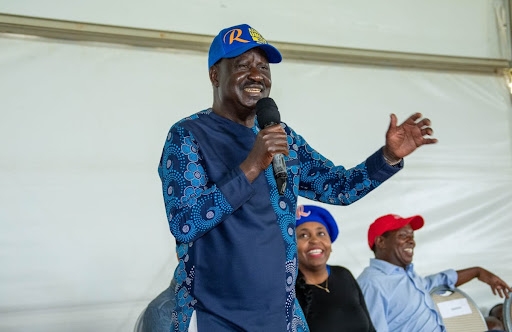Long-time readers of this column will already know that each time we are within 60 days or so of the next general election, I make some mention of perhaps the most infamous journalist to ever emerge from the East Africa region.
This I have done since the horrifying events of the 2008 post-election violence. And I do it in order to preach a message of caution and restraint directed at those who comment on Kenyan politics on various platforms.
The man in question here is the Rwandan journalist and entrepreneur, Hassan Ngeze, currently 15 years into his 35-year sentence being served in Mali.
What he was found guilty of by the International Criminal Tribunal for Rwanda, back in 2007, was “aiding and abetting the commission of genocide in Gisenyi prefecture; direct and public incitement to commit genocide through the publication of articles in his Kangura newspaper in 1994; aiding and abetting extermination as a crime against humanity in Gisenyi prefecture”.
In short, he was a key player in the Rwanda genocide of 1994. And indeed, samples of his newspaper’s pages are even now displayed at the Kigali Genocide Memorial alongside such crude instruments as were used in that genocide.
A few more things about this man, and the judgement that sent him to prison:
“In providing the legal justification for its decision, the tribunal cited several troubling precedents from European law in which journalists were prosecuted for hate speech and incitement. The tribunal repeatedly noted that under international law, countries have the right to limit freedom of speech to protect national security and public order and an obligation to restrict speech that advocates “national, racial, or religious hatred that constitutes incitement to discrimination, hostility, or violence.”
"… The tribunal concluded that, even though they preceded the onset of the genocide by several years, articles written and published by Ngeze created the psychological disposition among Rwanda’s population that made genocide possible.”
This long quote is from an article in Slate.com published in 2003.
Hassan Ngeze was arrested right here in Kenya (specifically, Mombasa) after he fled as the Rwanda Patriotic Front turned the tables on the Interahamwe militias, which he had supported through his newspaper.
So why do I bring this man’s name up again, given that I have admittedly used his example more than once in these very pages, and outlined the consequences that descended on him?
First is that Kenya now has a new and unregulated force in the media that did not exist before: the so-called “influencers”; commentators on “digital publications”; and general service “bloggers”. Many of them are young Kenyans with some media training, who were not lucky enough to find a place in the mainstream media. So, they now work at “messaging” on behalf of various politicians or political parties.
Such writers do not have the benefit of editorial supervision by long-serving editors who know what kind of political commentary might raise a few laughs in the short term, but which are bound to land the writer in trouble at some point in the future.
Then I would note that a good part of Hassan Ngeze’s evil work “preceded the onset of the genocide by several years”.
I am not suggesting that there is any Kenyan journalist or blogger who can reasonably be compared to Hassan Ngeze.
But on the other hand, we should remember that there was a journalist among the six suspects, known informally as the "Ocampo six" indicted by the International Criminal Court's Pre-Trial Chamber II on March 8, 2011, on charges of crimes against humanity. A Kenyan journalist in the dock at the ICC is something none of us would have imagined was possible – until it happened.
For our purposes what this means then, is that those unsupervised political commentators on social media, whose content posted over the last few years, arguably cross the line into the realms of incitement and hate speech, had better hope that the upcoming election will be peaceful.
Because if they are not, then there will be an abundance of electronic records made available to legal researchers, which would point to such individuals as having “created the psychological disposition” that made such violence possible.
“WATCH: The latest videos from the Star”










